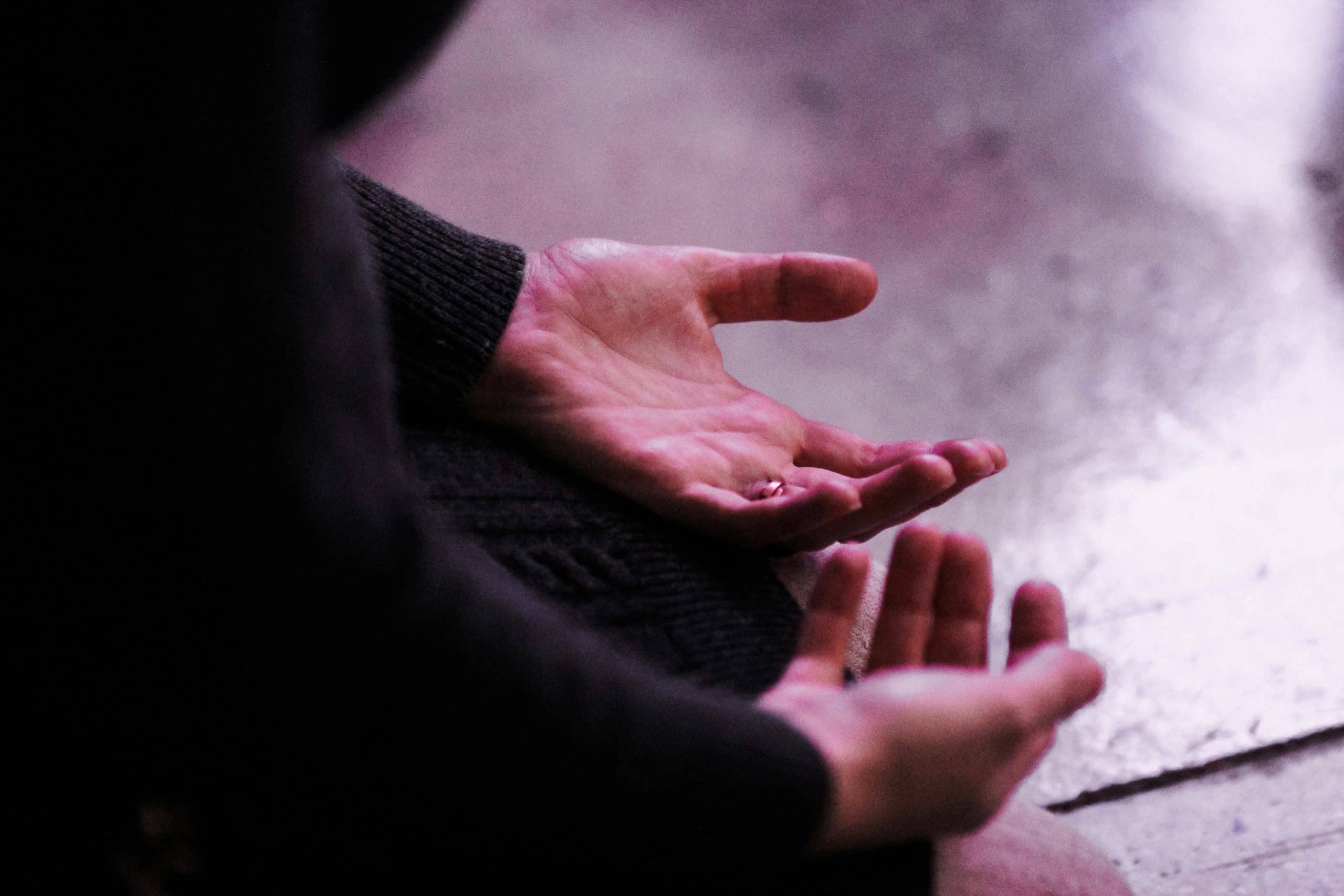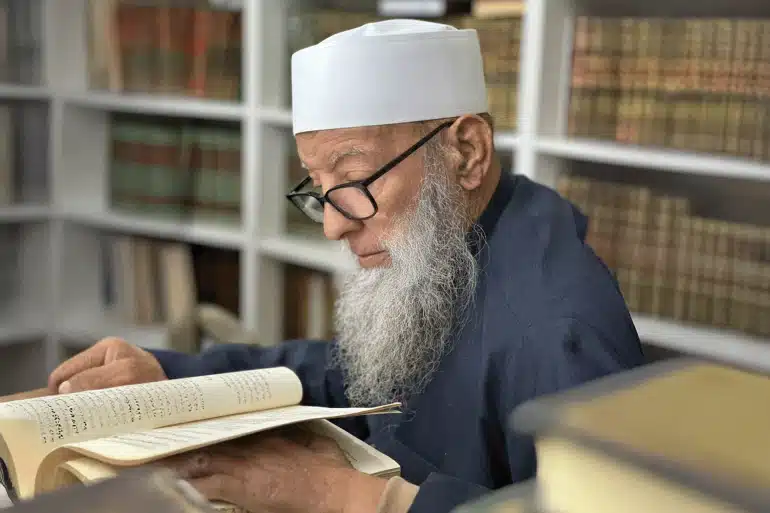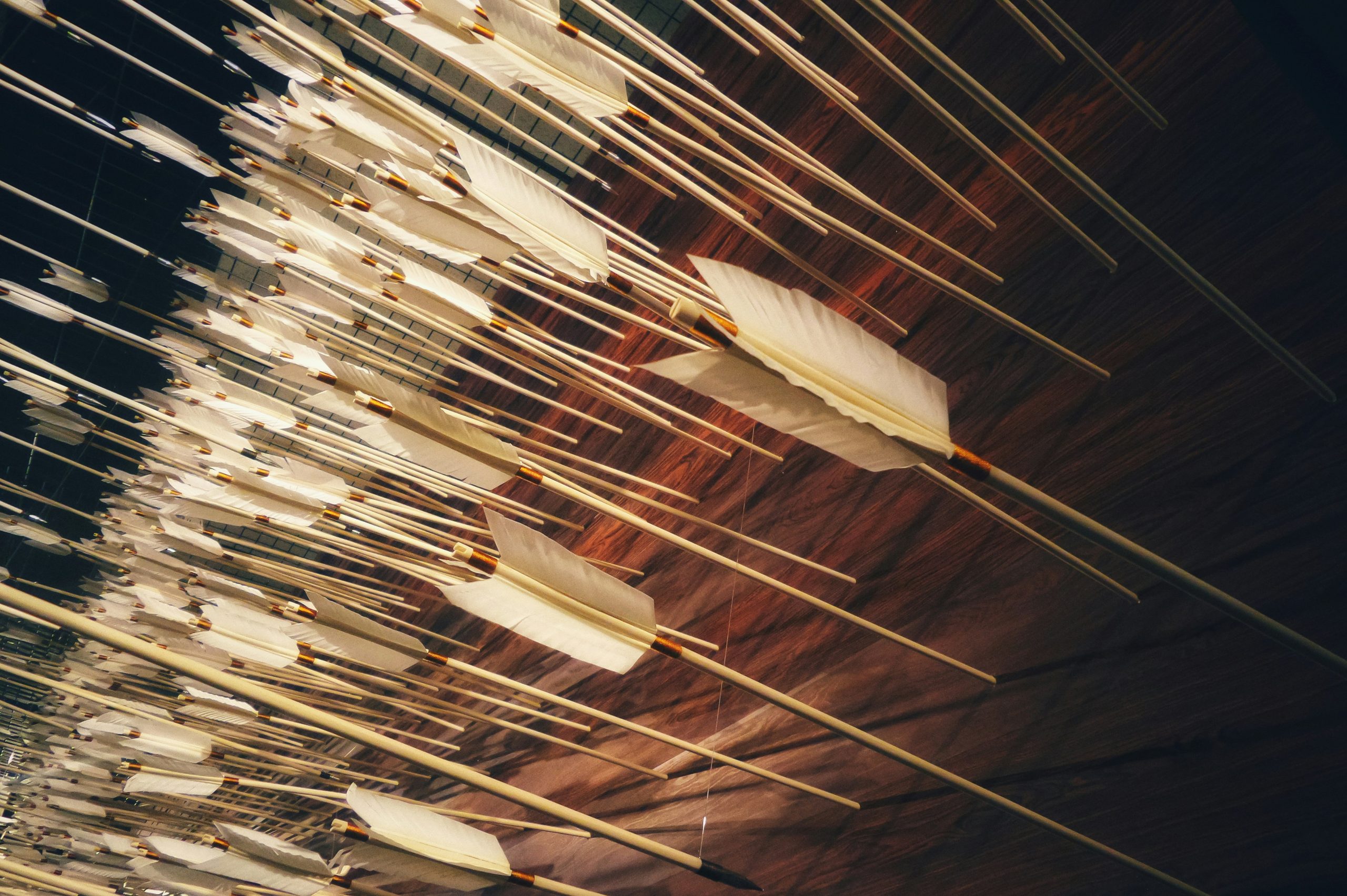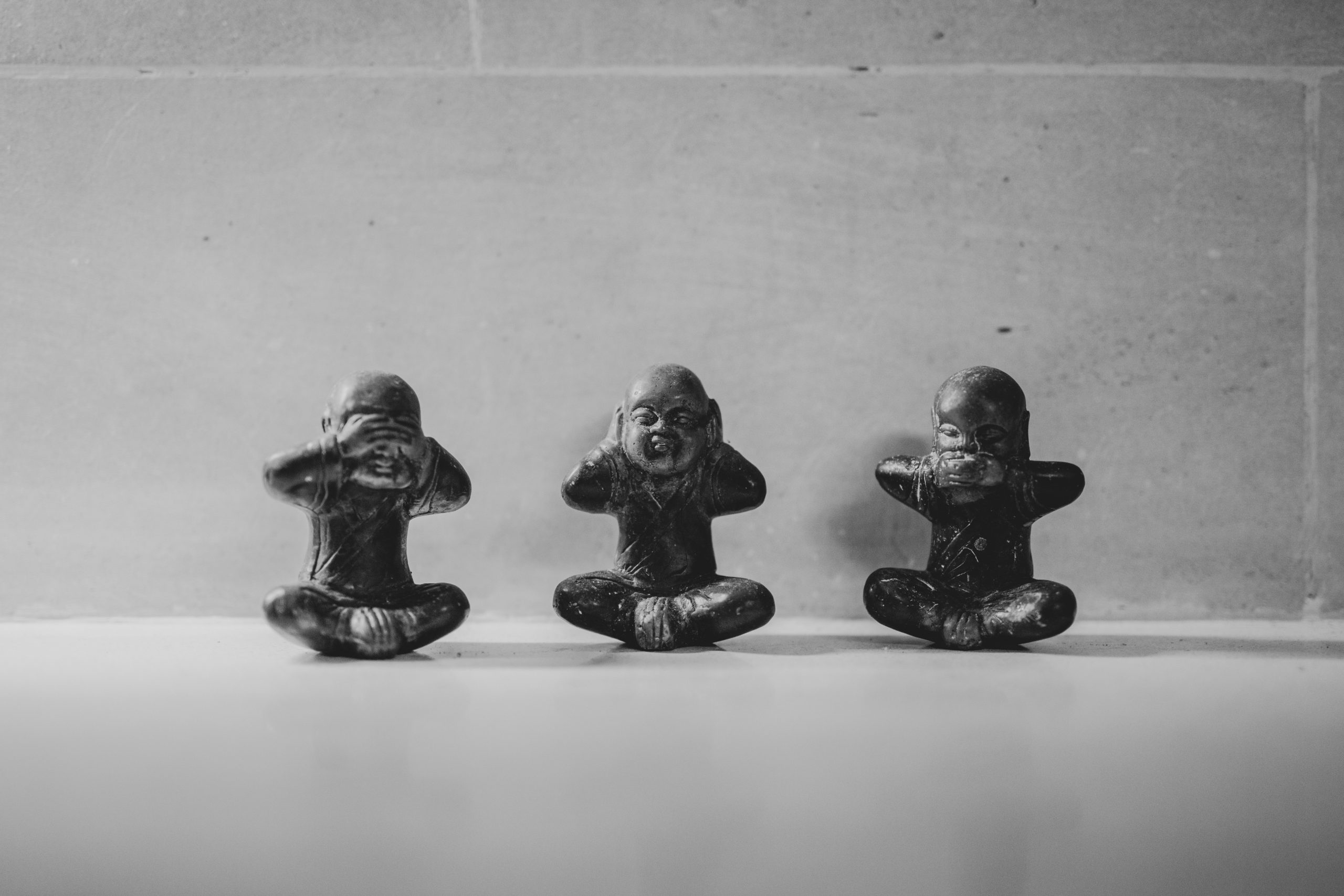How An Instagram Reel Kickstarted My Tahajjud Habit – Open The Floodgates Of Allah’s Mercy Before The Last 10 Nights Of Ramadan
The irresistible pull towards tahajjud is by the permission of Allah  , but it is a part of our lives for as long as we actively strive for it. The floodgates of Allah’s
, but it is a part of our lives for as long as we actively strive for it. The floodgates of Allah’s  Mercy are hidden in the last third of the night for those who seek it.
Mercy are hidden in the last third of the night for those who seek it.
Tahajjud, or the night prayer, is often related to quick fixes and miraculous events. Forums and reels abound with success stories after praying tahajjud. People eagerly probing, “did it work?”, perhaps affirming the scale of the miracles for themselves before embarking on less sleep than desired. Allah’s  Words are promises that should always suffice us, but the exchange of affirmations is an endearing way to gain comfort. A personified miracle in someone else’s life can feel incredibly reassuring that Allah
Words are promises that should always suffice us, but the exchange of affirmations is an endearing way to gain comfort. A personified miracle in someone else’s life can feel incredibly reassuring that Allah  is in fact the Hearing and Responsive. But eventually, that feeling must journey to our own conviction of what is possible for ourselves to be of value. To believe in the unseen workings of our prayer and supplication is part of our test on earth.
is in fact the Hearing and Responsive. But eventually, that feeling must journey to our own conviction of what is possible for ourselves to be of value. To believe in the unseen workings of our prayer and supplication is part of our test on earth.
I must admit, it was not a verse of the Quran or a hadith that alerted me to the blessedness of tahajjud prayer. It was one of those reels with a night-sky ambiance and slow reverb background nasheed that caught my attention. I had been freshly hit with a calamity in the winter of 2022 and desperately searching for a way to release my pent-up fears. I was going through something else at an unprecedented level – religious inadequacy. A sin was replaying in my mind and feelings of hypocrisy, regret, and self-loathing made a perfect nest in my heart.
Years later, I become emotional at the thought of being led to tahajjud. Every move, every interaction, every reaction, was leading to that night when I prayed tahajjud for the first time. The room was scarcely lit, save a crack of light from the corridor. I was alone with my thoughts in a way that differed from the daytime or even the early part of the nighttime, there was something extra spirited about pre-dawn. Every sajdah gripped my heart. I felt an overwhelming sensation of being lifted from within, and I am convinced to this day that I failed to make the one supplication that I had arranged for that night. I just kept repeating “Please forgive me”. I kept coming back, wanting to reinforce that connection. My faith had been shattered, and tahajjud was erecting new pillars. No later than a week, I realized that striving to be consistent seemed non-negotiable; when you find a rare beauty after a long and arduous journey, how can you turn back and abandon it?

“The irresistible pull towards tahajjud is by the permission of Allah [swt], but it is a part of our lives for as long as we actively strive for it.” [PC: Jon Tyson (unsplash)]
Imagine what can be achieved by the version of yourself who converses with Allah before anyone else upon waking up. What inner battles can be conquered when rushed mornings are replaced with stillness, built in by the blessed gap between the last third of the night and the break of dawn? How many people can say they get to witness the literal switch from night to day as a regular part of their routine? Are you not curious about who you would be as a vigilant observer of tahajjud? How enticing that there is hidden potential, a version of yourself that you have yet to discover, that can only be unlocked with tahajjud.
before anyone else upon waking up. What inner battles can be conquered when rushed mornings are replaced with stillness, built in by the blessed gap between the last third of the night and the break of dawn? How many people can say they get to witness the literal switch from night to day as a regular part of their routine? Are you not curious about who you would be as a vigilant observer of tahajjud? How enticing that there is hidden potential, a version of yourself that you have yet to discover, that can only be unlocked with tahajjud.
The night prayer held a special station with the Prophet  , the Companions, and the Revivers (Mujadidin) in the centuries after Prophethood. What made this prayer spiritually irresistible at night is deeply experiential. Even the full extent of the reward is a mystery. We know that habitual worship for Allah’s
, the Companions, and the Revivers (Mujadidin) in the centuries after Prophethood. What made this prayer spiritually irresistible at night is deeply experiential. Even the full extent of the reward is a mystery. We know that habitual worship for Allah’s  Sake is a spring well for both hidden and recognizable blessings, and what we are privy to in this world is just a small allotment (including those “tahajjud miracles”) of what awaits in the Hereafter. The reward is fully concealed as if to say, that the fruits of tahajjud can only be appreciated in another realm of existence. In Surah Al-Sajdah, Allah
Sake is a spring well for both hidden and recognizable blessings, and what we are privy to in this world is just a small allotment (including those “tahajjud miracles”) of what awaits in the Hereafter. The reward is fully concealed as if to say, that the fruits of tahajjud can only be appreciated in another realm of existence. In Surah Al-Sajdah, Allah  promises a concealed reward for those who perform good deeds:
promises a concealed reward for those who perform good deeds:
“They arise from [their] beds; they supplicate their Lord in fear and aspiration, and from what We have provided them, they spend.” [32;16]
“And no soul knows what has been hidden for them of comfort for eyes as reward for what they used to do.” [32;17]
I often sway between experiencing the spiritual and tangible benefits of tahajjud. The best way that I can describe its imprint on my life is the ability to walk lightly upon the earth, this effect lasting for as long as I prayed it. Problems and grief are lifted from the heart, a sweet departure from the captivity of this fleeting world. The events of the day that seemed so heavy before shrunk to their rightful value. That is because closeness to Allah  fills a bigger space in the heart, and the heart is a vessel with a finite capacity. We could unwittingly allow multiple masters to compete for that precious space as our desires fluctuate, but the heart that is true to its Master will be completely sufficed and guard itself from any other. Tahajjud creates a refined clarity towards situations that the most acclaimed self-help books cannot tap into, each prayer cultivating a stronger inner voice that understands its covenant towards Allah and does not want to teeter off the right path once it has been firmly guided.
fills a bigger space in the heart, and the heart is a vessel with a finite capacity. We could unwittingly allow multiple masters to compete for that precious space as our desires fluctuate, but the heart that is true to its Master will be completely sufficed and guard itself from any other. Tahajjud creates a refined clarity towards situations that the most acclaimed self-help books cannot tap into, each prayer cultivating a stronger inner voice that understands its covenant towards Allah and does not want to teeter off the right path once it has been firmly guided.
I recall my corporate job, when murmurings of budget cuts grew as the fiscal year was closing and jobs were at risk. I had every reason to panic as the newest and outsourced staff. Earlier that year, I had taken on new financial responsibilities based on my position. But I was somehow able to compartmentalize the situation, the dramatized version swirling in the office and the version that I would create for myself. My attitude probably felt overly nonchalant to my colleagues, but I explicitly remember thinking, “I had not slacked off in the slightest, now when is that quarterly report due again?” on my way to the prayer room for noon prayer. I elongated my prayers more, kept my head cool, and fixated on my deliverables. It became evident that giving very little consideration to the layoff threats – on account of Allah  being the true Bestower of material wealth – made me stand out as an employee. My contract had not only been extended but changed altogether; I was on track to become permanent on the team and a 20 percent bonus was on the horizon. I had been on a daily tahajjud streak that month and the month before. It was certain that repetitive nightly prayers had subtly transformed my mindset towards everyday situations and moments of ease that I had not prayed came in abundance.
being the true Bestower of material wealth – made me stand out as an employee. My contract had not only been extended but changed altogether; I was on track to become permanent on the team and a 20 percent bonus was on the horizon. I had been on a daily tahajjud streak that month and the month before. It was certain that repetitive nightly prayers had subtly transformed my mindset towards everyday situations and moments of ease that I had not prayed came in abundance.
Conquering impossible situations and experiencing the aura of nighttime are starting points. But if you stick around, the most rewarding dimension of tahajjud cannot be seen but felt. Tahajjud is pleasing to Allah  and may that be enough for aching souls that have wandered, who feel unseen in the world, and who long to prepare for a pleasing return to their Creator. In those initial moments when the eyelids feel heavy and the body feels glued to the bed, I am moved by the part in Prophet Musa’s
and may that be enough for aching souls that have wandered, who feel unseen in the world, and who long to prepare for a pleasing return to their Creator. In those initial moments when the eyelids feel heavy and the body feels glued to the bed, I am moved by the part in Prophet Musa’s  story where Allah
story where Allah  asks him why he came to the Mount with such haste ahead of his people. Prophet Musa
asks him why he came to the Mount with such haste ahead of his people. Prophet Musa  gave the most endearing response:
gave the most endearing response:
“He said, “They are close upon my tracks, and I hastened to You, my Lord, that You be pleased.” [Surah Taha; 20;84]
Building a Tahajjud HabitThere is no better time to begin a tahajjud ritual than the last 10 nights of Ramadan.
Beyond the month of Ramadan, establishing consistency upon tahajjud is an honorable way to please Allah  , have a disciplined morning, and develop a strong and sound heart. My journey has taught me several tried-and-true steps for making tahajjud a mainstay habit in life.
, have a disciplined morning, and develop a strong and sound heart. My journey has taught me several tried-and-true steps for making tahajjud a mainstay habit in life.

“There is no better time to build a tahajjud habit than during the last 10 nights of Ramadan.” [PC: Austin Chan (unsplash)]
Set a clear intentionAffix a strong intention to your tahajjud journey. Is it spiritual discipline you desire? Do you have a mountain of worries and want to fill the restlessness with worship? Do you have someone in your life who could use the unfailing arrow of a tahajjud dua’? Do you want nothing other than to say to Allah  , “I was here. I got up for no other reason than to be recognized by You”?
, “I was here. I got up for no other reason than to be recognized by You”?
Your intention will be your close companion on this journey. One of my teachers taught me this core principle for consistency: If the intention weakens or ceases to move you, renew the intention instead of ceasing the practice. Perhaps the supplication that once excited you is no longer in your heart or has become half-hearted and needs to be revived with more powerful words. If tahajjud begins to feel like an impossibility in your life, my advice is to tap into the most hopeful part of yourself and revive a heartfelt dua that has been sitting in your heart.
Construct a pre-tahajjud ritualSetting your alarm and sleeping at a decent hour is just the start of habit-stacking for tahajjud. I made the mistake of slipping into an “it happens if it happens” mindset and had to course-correct in other ways when sleeping early did not suffice.
Waking up for tahajjud, like any other habit, thrives with planning and attempting many steps until you find a personal rhythm. What do you need to add, change, or omit from your bedtime routine to make it possible? For omissions, think about shunning devices, avoiding caffeine several hours before bed, and eliminating a late-night habit. Then, add a beneficial habit before habit. I recommend picking up a sunnah habit to anchor you in worship and add barakah to your sleep. I personally found that sleeping in a state of purity (i.e. fresh wudu) helped me to wake up with mysterious energy even if I had slept a mere 3 hours.
Conceal your habitTahajjud is a sincerity builder, you are in a position where no one is truly around to witness the prayer. If you share the household with others, you are likely doing your best to avoid disturbing their sleep. Guard that sincerity by keeping it to yourself as best as you can. There is a way to share your habit with others with motivational intent, but even in that situation, it could be encouraged without sharing the exact details of your consistency or praising yourself. Just as with material bounties, good deeds are best kept private. A keepsake between you and Allah  that will be waiting for you in your book of deeds with sincerity intact.
that will be waiting for you in your book of deeds with sincerity intact.
For those who experience its gems for even one night, the desire to pray tahajjud daily can become a fixation. A missed night can feel heartbreaking, which demonstrates a close attachment to this incredible deed. However, when it comes to voluntary deeds, there is nothing Shaytan wants more than for you to develop all-or-nothing thinking towards them, and ultimately abandon them when you fall short.
Consistency may not mean every single day, but that someday you return to it. In this way, the constant return is what makes it consistent. It is inherently beneficial to strive for a daily habit; meanwhile, where there is submission, there is worship. When you miss a prayer, take solace that the intention earned you the deed and take the opportunity to revive the intention with this affirmation: “I am imperfect but here I try again. I did not leave it altogether”. That is a demonstration of consistency, free from the shackles of perfectionism.
In what is left of Ramadan and nearing the last ten nights, may Allah
attach our hearts to tahajjud prayer through which we grow to love Him and connect to His Mercy. When this blessed month leaves us, may He grant us the wisdom to use our days as a passageway to stand before Him at night, and our nights as a burst of spiritual energy that lingers in the day.
Related:
– A Tahajjud Journey To Inspire Your Own: A Ramadan Goal That’s Not As Hard As It Seems
– Show Up As You Are: Overcoming Ramadan Guilt For The Last 10 Nights
The post How An Instagram Reel Kickstarted My Tahajjud Habit – Open The Floodgates Of Allah’s Mercy Before The Last 10 Nights Of Ramadan appeared first on MuslimMatters.org.


 I realized that I’m getting a pretty sweet deal if I play the game right this Ramadan, and instead of fighting it or begrudgingly accepting it as I’ve done for the past six years I’ve been a mom, I’m embracing it for the first time with positivity and optimism. This to me is the game changer this year that I’m hoping will make my Ramadan feel sacred and special because I’m a SAHM, and not in spite of it.
I realized that I’m getting a pretty sweet deal if I play the game right this Ramadan, and instead of fighting it or begrudgingly accepting it as I’ve done for the past six years I’ve been a mom, I’m embracing it for the first time with positivity and optimism. This to me is the game changer this year that I’m hoping will make my Ramadan feel sacred and special because I’m a SAHM, and not in spite of it. 

 , Mother of Believers. For weeks, she suffered in agonizing isolation as rumors consumed her reputation. Her body wasted away until she had no tears left, describing her pain as beyond any physical suffering she had endured, a soul-deep wound inflicted not by enemies but by those she considered family. The power dynamics were unmistakable: accusations flowed from those seeking to undermine the Prophet’s ﷺ mission by attacking his household, while others amplified these claims to secure their own social position.
, Mother of Believers. For weeks, she suffered in agonizing isolation as rumors consumed her reputation. Her body wasted away until she had no tears left, describing her pain as beyond any physical suffering she had endured, a soul-deep wound inflicted not by enemies but by those she considered family. The power dynamics were unmistakable: accusations flowed from those seeking to undermine the Prophet’s ﷺ mission by attacking his household, while others amplified these claims to secure their own social position.

